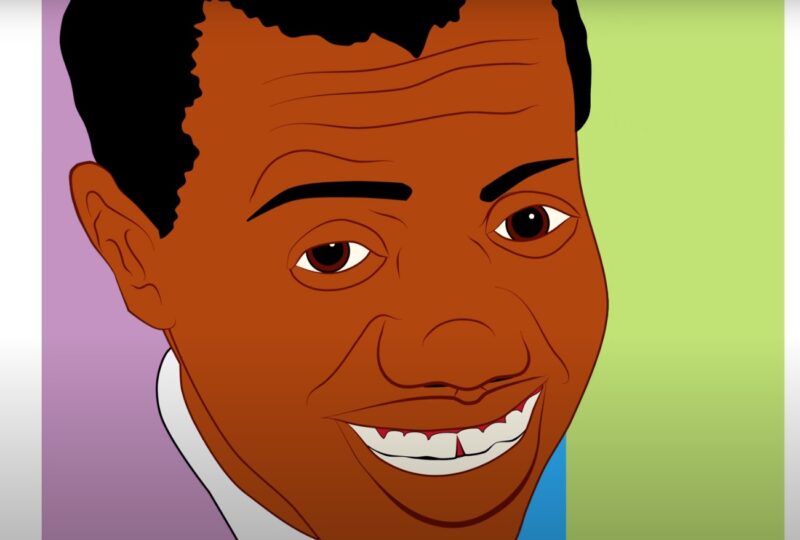Louis Armstrong is the Father of Jazz, and one of the most influential musicians of all time. His music transcended the boundaries of jazz and shaped the culture of the 20th century. He grew up in New Orleans, a city full of music and life, but he faced many hardships as a child.
Despite his challenges, he became a self-taught trumpet virtuoso and a master of improvisation. His voice was unique and captivating, with a gravelly and warm tone. He charmed the audience with his charisma and humor.
People all over the world loved him. He was not only a musical genius, but also a champion of civil rights and a cultural ambassador for the United States. Here are some interesting facts about him you might never heard before.
1. Early Encounter with Music
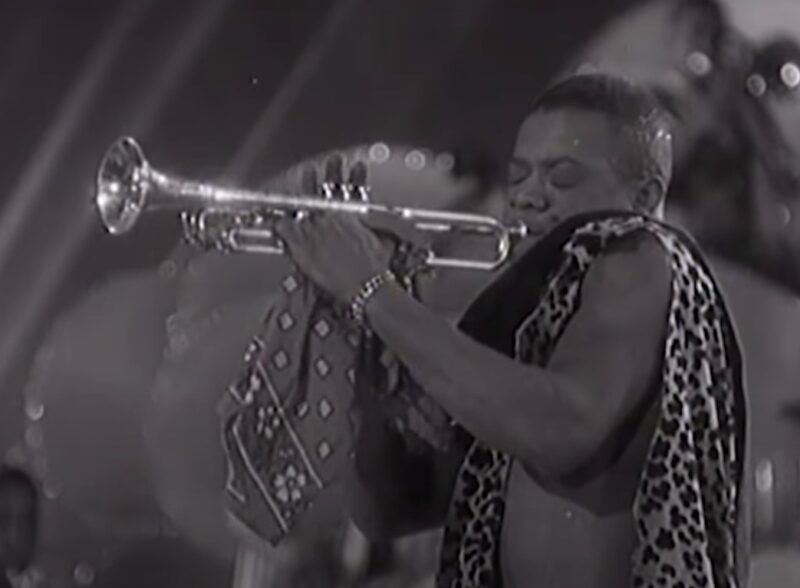
At just seven years old, Louis Armstrong worked for a Jewish family, the Karnofskys, who encouraged his early interest in music by lending him the money to buy his first cornet. This moment not only marked the beginning of Armstrong’s musical journey but also fostered a lifelong bond with the Karnofsky family, influencing his views on race and equality. Armstrong’s gratitude towards this family was profound, and he wore a Star of David pendant for the rest of his life in their honor.
He known as one of the best performers of Scat Singing.
2. Awards and Recognitions
He was inducted into the Rock and Roll Hall of Fame in 1990, an honor that highlighted his foundational role in the development of popular music genres beyond jazz. Armstrong also received a Grammy Lifetime Achievement Award in 1972, celebrating his enduring impact on the music industry and his exceptional body of work.
His song “Hello, Dolly!” earned him a Grammy Award for Best Vocal Performance, Male, in 1964, showcasing his versatility as a singer. Beyond these, Armstrong was posthumously awarded the Grammy Lifetime Achievement Award, a testament to his timeless influence and the lasting legacy of his music.
3. Performance Before King George V
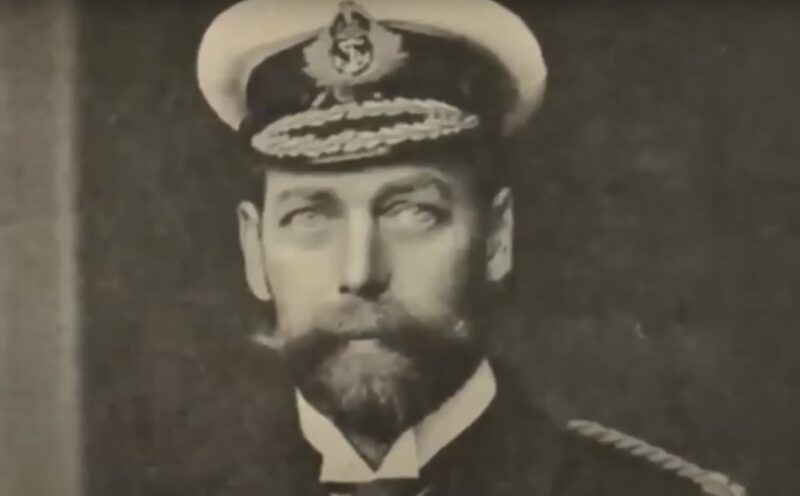
In 1932, Louis Armstrong performed for King George V, a significant event that showcased his ability to captivate any audience, including royalty. Armstrong’s direct interaction with the king during this performance was a bold move that highlighted his confidence and charm, further cementing his international status.
4. Lip Damage from Playing
Armstrong’s intense playing technique led to significant lip damage, demonstrating his dedication to his music. Despite the physical toll, he continued to play and innovate, showing his commitment to his art form.
5. “What a Wonderful World” and Its Delayed Success
Initially overlooked in the United States, “What a Wonderful World” became a global hit after Armstrong’s death. Its eventual success underscores the timeless quality of Armstrong’s music and his ability to connect with listeners worldwide.
6. Role as a Musical Ambassador
Armstrong’s tours for the U.S. State Department during the Cold War exemplify his role as a cultural ambassador. His performances abroad helped to bridge cultural gaps and promote American music and values, utilizing jazz as a tool for diplomacy.
7. “Hello Dolly!” Breaks Records
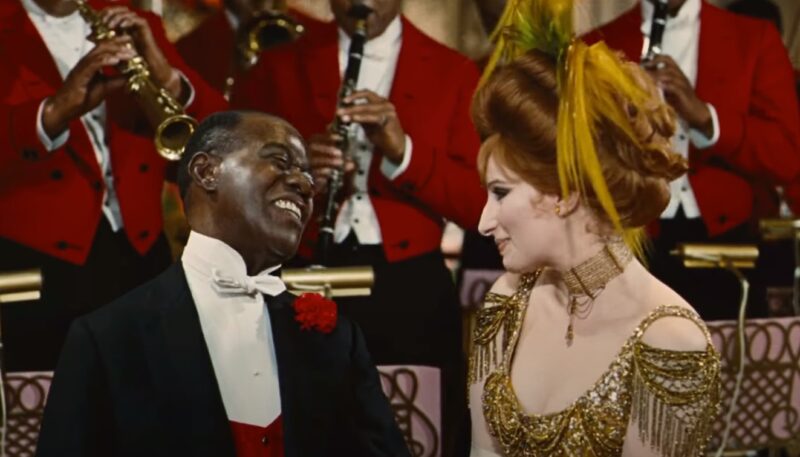
With “Hello Dolly!” Armstrong became the oldest artist to achieve a number-one hit on the Billboard Hot 100 in 1964. This achievement disrupted the Beatles’ chart dominance and highlighted Armstrong’s enduring appeal across different music genres.
8. Speaking Out Against Racism
Armstrong’s vocal criticism of the government’s response to the Little Rock integration crisis in 1957 was a significant moment that demonstrated his commitment to civil rights and willingness to use his influence for social justice.
9. Hollywood and Television Appearances
Armstrong’s appearances in films and on television, including The Tonight Show, helped to popularize jazz with broader audiences. His engaging personality and performances in these mediums contributed significantly to his legacy as an entertainer.
10. Legacy and Memorials
The naming of New Orleans’ main airport and a tennis stadium after Armstrong, along with the preservation of his Queens home as the Louis Armstrong House Museum, are testaments to his lasting impact on music and culture.
11. Faith in His Career
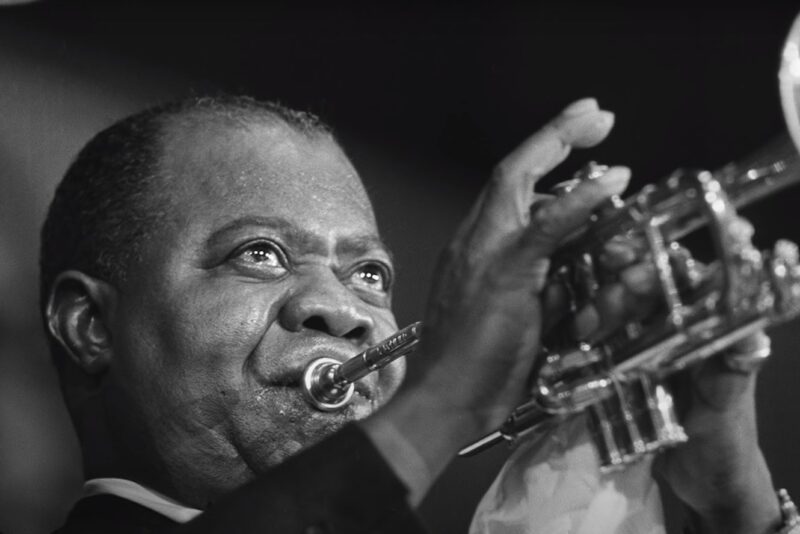
Raised Baptist and later embracing Catholicism, Armstrong’s faith influenced his life and music. His spiritual background was a source of inspiration throughout his career, reflecting in his approach to both his personal life and his art.
12. Jazz Ambassadorship
Armstrong’s global tours and performances solidified his role as an ambassador of jazz, spreading the genre worldwide and influencing countless musicians. His ability to communicate through music made him a beloved figure internationally.
13. Music in Space – Apollo 11
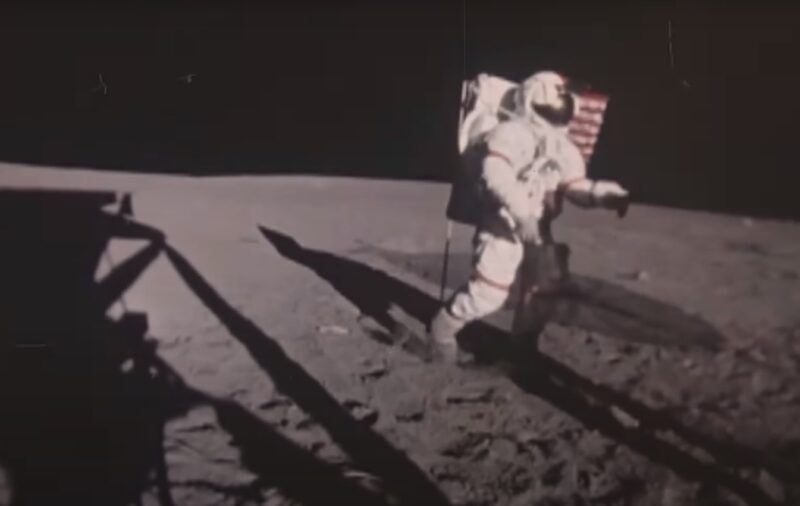
Armstrong’s music reached beyond Earth when “What a Wonderful World” was played during the Apollo 11 moon landing, showcasing the universal appeal of his work and its ability to inspire even in the most extraordinary circumstances.
14. Breaking Racial Barriers
Louis Armstrong shattered the boundaries of race in an era when segregation was the norm. He emerged as a beloved figure across racial lines, a rare feat for African American entertainers at the time. Armstrong’s widespread acceptance by diverse audiences not only marked a significant cultural shift but also laid the groundwork for the artists who followed. His success challenged the status quo and demonstrated the unifying power of music.
15. Philanthropy and Advocacy for Racial Equality
Louis Armstrong was more than a legendary musician; he was a committed advocate for social justice. Using his fame and influence, he actively supported civil rights initiatives and worked to uplift communities. Armstrong’s philanthropy extended beyond financial contributions; he lent his voice to the fight for equality, making him a key figure in the broader struggle for civil rights. His actions off-stage were as impactful as his performances, contributing to his enduring legacy as a champion for change.
16. Love for Writing Letters
Louis Armstrong was an avid letter writer, known for his detailed and often humorous correspondence with fans, friends, and fellow musicians around the world. He took great care in crafting his letters, often including jokes, drawings, and personal anecdotes. This habit of letter-writing offers a window into Armstrong’s personality, showcasing his warmth, wit, and the value he placed on personal connections.
17. Innovative Use of Recording Technology

Armstrong was among the first musicians to make extensive use of recording technology to improve his music. He was known to record his rehearsals and performances on a reel-to-reel tape recorder, then listen back to critique his playing and improve his technique. This innovative use of technology was ahead of its time, demonstrating Armstrong’s commitment to his craft and his willingness to use new tools to enhance his artistry.
18. A Passion for Swiss Watches
Louis Armstrong had a well-documented passion for Swiss watches. He often visited Switzerland on his tours, and during these visits, he indulged in his hobby of collecting fine Swiss watches. Armstrong was known to gift these watches to friends and loved ones as a token of his affection. This unique hobby underscores Armstrong’s appreciation for craftsmanship and precision, qualities that also defined his approach to music.
FAQs
What was Louis Armstrong’s famous quote?
One of Louis Armstrong’s most famous quotes is: “If you have to ask what jazz is, you’ll never know.” He said this when someone asked him what jazz was.
What is Louis Armstrong favorite thing?
Louis Armstrong loved many things, but one of his favorite things was rice and beans. He often signed his letters with “Red Beans and Rice-ly Yours” and ate the dish every Monday.
What is Louis Armstrong’s biggest hit?
Louis Armstrong had many hit songs, but his biggest hit was “What a Wonderful World”. The song reached number one in the UK in 1968, and was re-released after his death in 1971. It has since become a classic and a standard for many artists.
What religion was Louis Armstrong?
Louis Armstrong was raised as a Baptist, but he also had a strong interest in Judaism. He wore a Star of David pendant for most of his life, as a tribute to the Karnofsky family, who helped him buy his first horn.
Last Words
Louis Armstrong was more than just a great jazz musician. His life was hard, but he never gave up. He cared about making the world a better place for everyone. His music and his personality inspired and influenced many people. He broke down walls between different cultures and races.
A kind and fun person who loved life, he showed us how art can connect people, make us happy, and fight for justice. When we think about his amazing life, we see that Louis Armstrong was not only the king of jazz but also a hero and a role model for the world.

